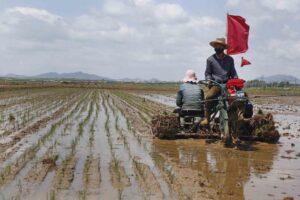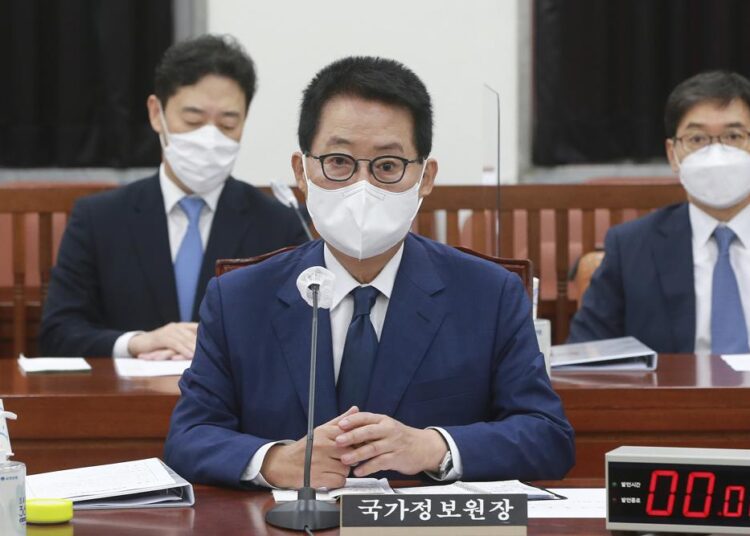SEOUL — North Korea is releasing emergency military rice reserves as its food shortage worsens, South Korea’s spy agency said Tuesday, with a heat wave and drought reducing the country’s supply.
North Korea’s reported food problems come as its moribund economy continues to be battered by the protracted Covid-19 pandemic, AP reported. While mass starvation and social chaos have not been reported, observers expect a further deterioration of North Korea’s food situation until the autumn harvest.
Seoul’s National Intelligence Service (NIS) told a closed-door parliamentary committee meeting that North Korea is supplying rice reserved for wartime use to citizens with little food, other labourers and rural state agencies, according to Ha Tae-keung, one of the lawmakers who attended the session.
Ha cited the NIS as saying an ongoing heat wave and drought have wiped out rice, corn and other crops and killed livestock in North Korea. The NIS said North Korea’s leadership views fighting the drought as “a matter of national existence” and is focusing on increasing public awareness of its campaign, Ha said.

Another lawmaker, Kim Byung-kee, quoted the NIS as saying that North Korea normally needs about 5.5 million tons of food to feed its 26 million people but is currently short 1 million tons. He said the NIS told the lawmakers that North Korea is running out of its grain stockpiles.
The price of rice, the most important crop in North Korea, doubled from early this year. The price briefly stabilised in July before soaring again, Kim cited the NIS as saying.
Ha said North Korea is trying to control the price of grains to which its public is most sensitive.
Kwon Tae-jin, an expert at the private GS&J Institute in South Korea, said North Korea is likely releasing the military reserves to sell at a cheaper price than at markets to stabilise prices. He said rice prices are “considerably unstable” in North Korea because the government has a limit on how much rice it can supply.
It isn’t the first time that North Korea has released state rice reserves, but the assessment that it doesn’t have much left in its grain stockpiles is worrisome, Kwon said.
North Korea had similar food shortages in past years before the pandemic, according to Kwon, but its needs were met by the smuggling of rice and other grains via its porous border with China. But North Korea’s ongoing pandemic-caused border closure makes it extremely difficult for such smuggling to happen, worsening this year’s food shortage, Kwon said.
The NIS has a spotty record in confirming developments in North Korea, one of the world’s most secretive countries. But its current assessments come after North Korean leader Kim Jong Un admitted his country faces the “worst-ever” crisis due to the pandemic and other difficulties and even a possible dire food shortage.
During a key ruling party meeting in June, Kim urged officials to find ways to boost agricultural production, saying the country’s food situation “is now getting tense.” Earlier, he even compared the ongoing pandemic-related difficulties to a 1990s famine that killed hundreds of thousands of people.






Discussion about this post